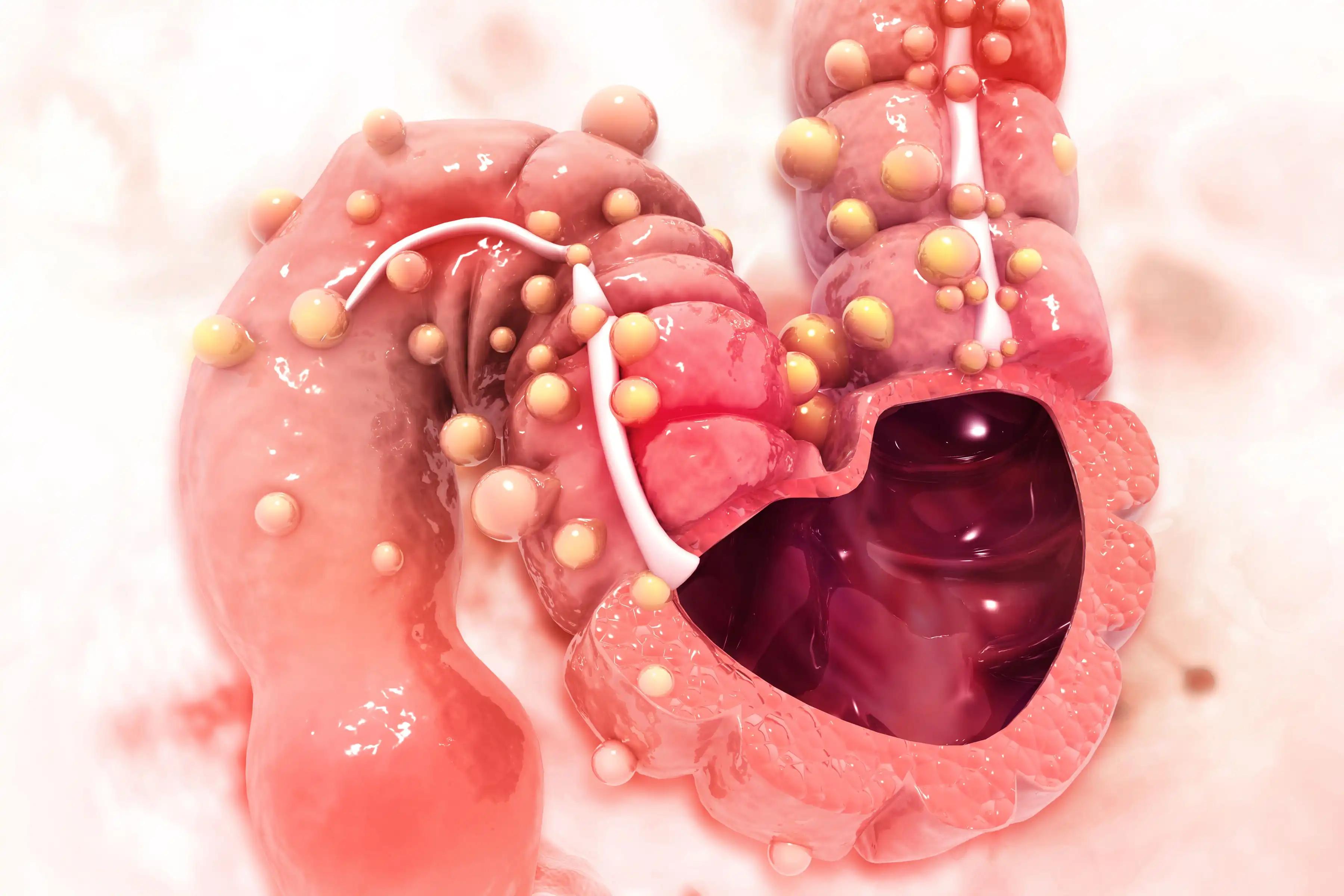KEY TAKEAWAYS
- The phase II/III trial aimed to determine if post-resection positive ctDNA status in low-risk stage II colon cancer patients predicts benefit from adjuvant chemotherapy.
- The primary endpoint was ctDNA clearance.
- The study did not meet the endpoint, and enrollment stopped per pre-specified rules. Future trials need assay specificity.
In colon cancer patients, detecting circulating tumor DNA (ctDNA) surpasses traditional clinical and pathological factors in predicting recurrence risk post-resection.
Van K. Morris and the team conducted the study that aimed to assess whether positive ctDNA status after resection identifies low-risk stage II colon cancer patients benefiting from adjuvant chemotherapy.
Patients with resected stage II colon cancer lacking traditional high-risk features and deemed suitable for active surveillance by the oncologist were randomized 1:1 into two arms: standard-of-care/observation (Arm A) or ctDNA assay-directed therapy (Arm B). Postoperative blood underwent ctDNA analysis using the Guardant LUNAR assay, covering relevant mutations and methylation profiling specific to colon cancer. Arm B patients with detected ctDNA received 6 months of adjuvant (CAPOX or FOLFOX) chemotherapy.\
The primary phase II endpoint was ctDNA clearance at the 6-month mark. A one-sided Fisher exact test compared ctDNA clearance between Arm A and Arm B among the first 16 patients with baseline ctDNA detection. Researchers stated that the study would stop for futility of ctDNA clearance if P > 0.35; otherwise, it would proceed to phase III if P≤ 0.35.
About 635 patients were randomized (Arm A: 318; Arm B: 317). One patient from Arm B with detected ctDNA declined protocol-directed chemotherapy but was included in the intention-to-treat analysis. Among the initial 16 patients with baseline ctDNA detection for the primary endpoint analysis, ctDNA clearance after 6 months was observed in 3 out of 7 patients (43%, 95% CI [10-82%]) in the control arm and 1 out of 9 patients (11%, 95% CI [0.3-48%]) in the experimental arm post-chemotherapy (P= .98). No unexpected toxicities were reported in the chemotherapy-treated group.
The phase II endpoint was not achieved, leading to the cessation of further enrollment based on pre-defined study-stopping rules using the original assay. No enhancement in ctDNA clearance was noted after 6 months of chemotherapy in patients with detected ctDNA post-resection of stage IIA colon cancer.
Future trials assessing ctDNA as a key biomarker for minimal residual disease should consider assay specificity in this patient population. Research was funded by NRG Oncology.
Source: https://meetings.asco.org/abstracts-presentations/228849
Clinical Trial: https://clinicaltrials.gov/study/NCT04068103
Morris VK, Yothers G, Kopetz S, et al. (2024). “Phase II results of circulating tumor DNA as a predictive biomarker in adjuvant chemotherapy in patients with stage II colon cancer: NRG-GI005 (COBRA) phase II/III study.” JCO 42, 5-5(2024). DOI:10.1200/JCO.2024.42.3_suppl.5



